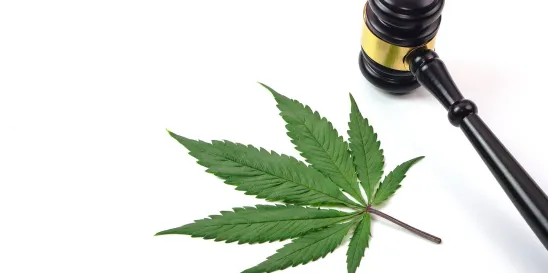This case addresses whether attorney’s fees are warranted due to an inequitable conduct and conflict of interest defense.
Background
UCANN filed suit in the District of Colorado in July 2018, accusing Pure Hemp of infringing the ’911 patent, entitled “Cannabis Extracts and Methods of Preparing and Using the Same.” The parties stipulated to the dismissal of this case in 2021. On April 14, 2021, Pure Hemp moved for an award of attorney fees pursuant to 35 U.S.C. § 285, 28 U.S.C. § 1927, and the district court’s inherent authority. Pure Hemp asserted that (1) UCANN’s prosecution counsel had allegedly committed inequitable conduct by copying text from a piece of prior art, U.S. Patent Publication No. 2004/0033280 (“Whittle”), into the specification of the ’911 patent and then not disclosing Whittle to the USPTO as prior art; and (2) UCANN’s litigation counsel, Cooley LLP, purportedly took conflicting positions in its representation of UCANN and another client, GW Pharma (the owner of Whittle). Pure Hemp timely appealed.
Issue(s)
Did the district court err in denying attorney’s fees for (1) failing to find Pure Hemp to be the prevailing party in the litigation; (2) not concluding that the undisputed facts establish inequitable conduct; and (3) not recognizing that UCANN’s attorneys had a conflict of interest for which they should be sanctioned?
Holding(s)
The district court did not err in finding that Pure Hemp was not entitled to attorney’s fees, though the district court did err in failing to find that Pure Hemp was the prevailing party.
Reasoning
The Federal Circuit found that Pure Hemp successfully rebuffed UCANN’s lawsuit and “ensured that UCANN can never again assert the same patents against Pure Hemp’s same accused products.” Therefore, the district court erred in failing to find Pure Hemp to be the prevailing party. However, the Court found that this error was harmless because the district court did not abuse its discretion in finding that the case was not exceptional as to warrant attorney’s fees. The Court found that the district court did not have to conduct further proceedings on the inequitable conduct argument and, based on the existing record, there was a genuine dispute as to whether Pure Hemp could satisfy its burden of proof. Therefore, because the record demonstrates a genuine dispute as to the material fact of intent and the materiality of the conduct, Pure Hemp failed to meet its burden to prove that this case is exceptional due to inequitable conduct. Pure Hemp asserted that the Federal Circuit could make its own findings on intent to deceive and materiality. However, the Court affirmed that it could not make its own findings of fact. Pure Hemp also argued that the district court failed to provide a more fulsome analysis. The Court rejected this contention because it has not imposed a blanket requirement that a district court must provide its reasoning in attorney fee cases. Finally, the Court found that Pure Hemp waived its conflict of interest argument because it did not cite Rule 1.7 of the Model Rules of Professional Conduct to the district court before citing it to the Federal Circuit. Furthermore, there was also no evidence presented that the patents Cooley prosecuted and obtained were identical. Pure Hemp failed to show that Cooley acted adversely to the interests of UCANN or GW Pharma. As a final matter, the Court narrowly found that the appeal was not frivolous because while the position was weak, it was not frivolous, as evidenced by the fact Pure Hemp won on the point that the district court erred in failing to find it as the prevailing party.



 />i
/>i

